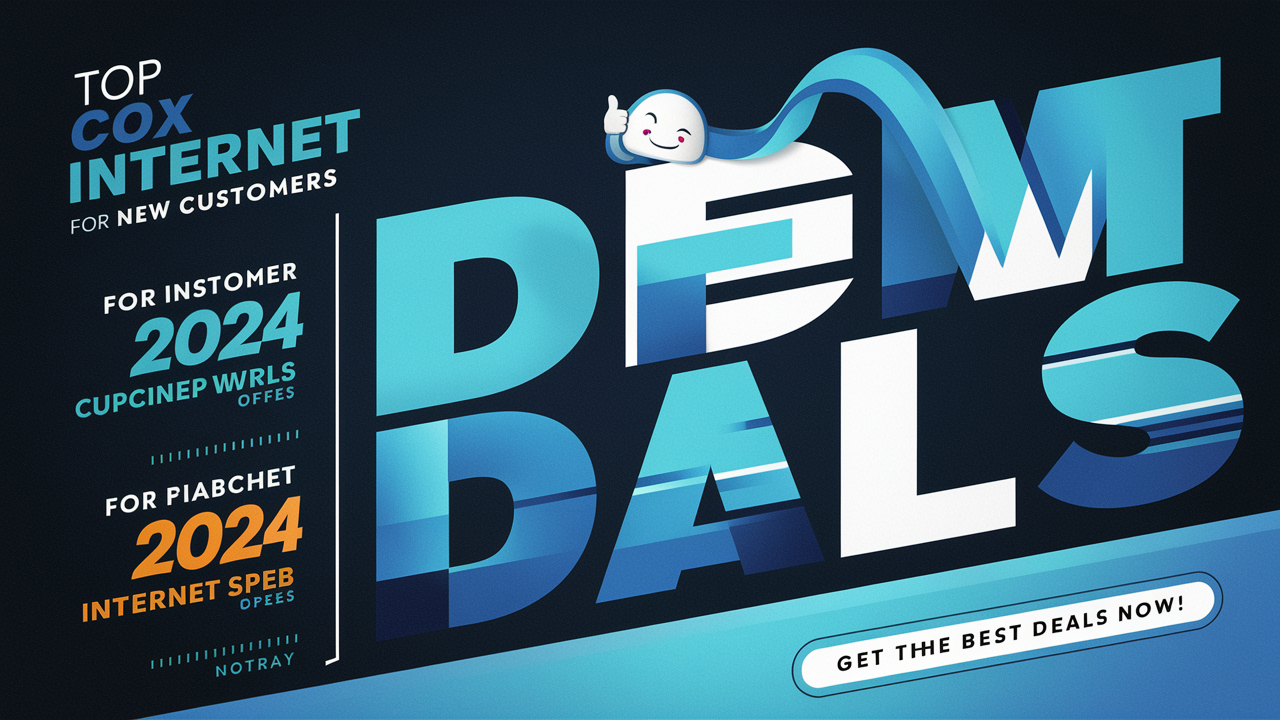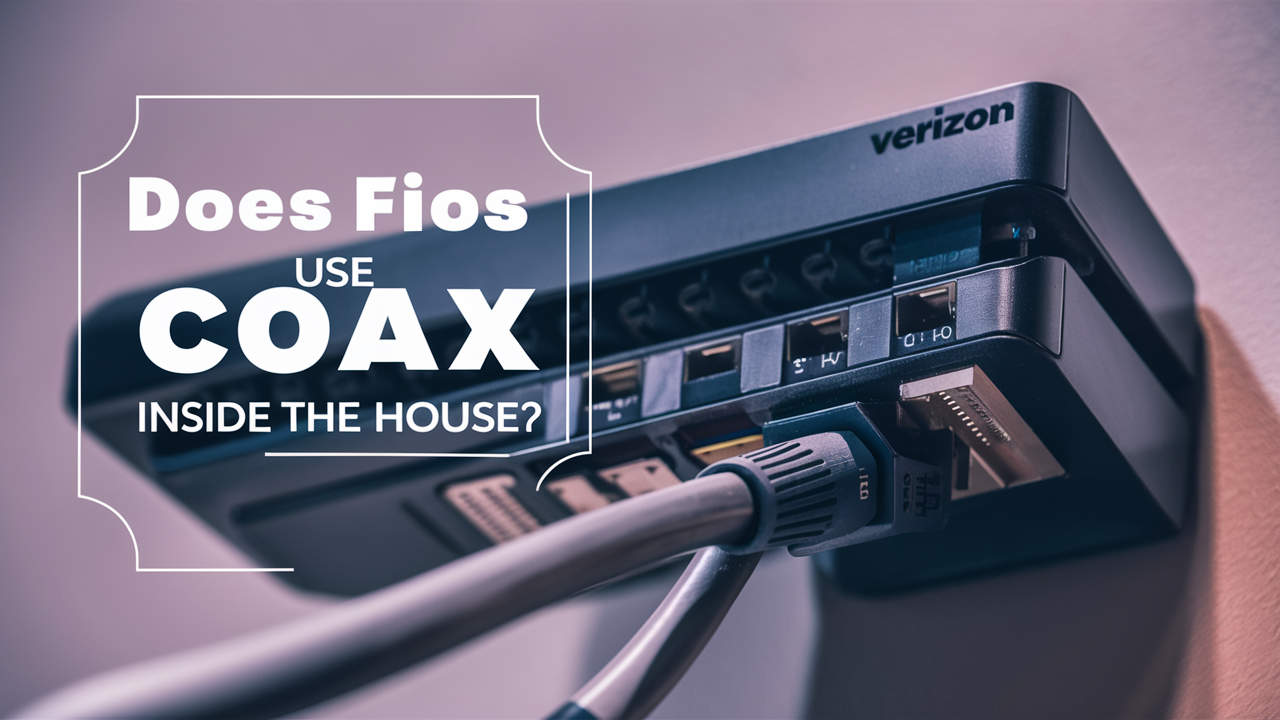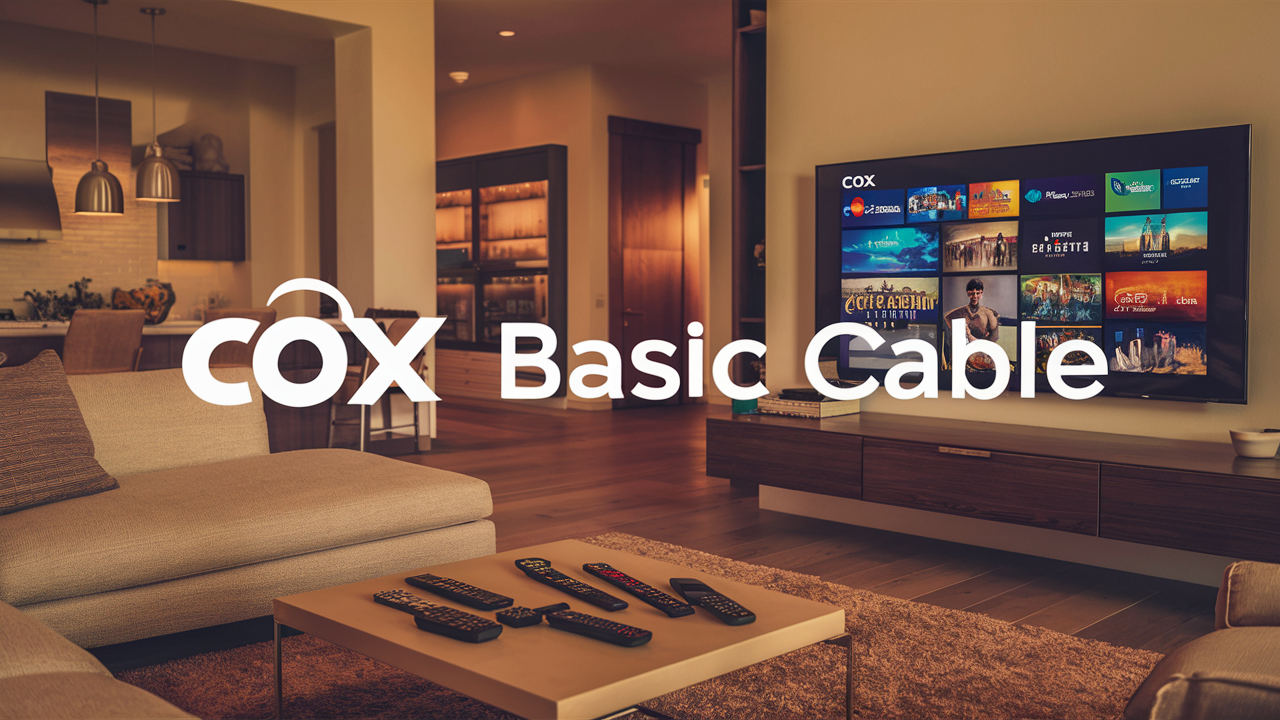What is the Price Range for Cox Internet?

Discover the comprehensive price range for Cox Internet plans in 2025. This guide breaks down the costs, features, and factors influencing your monthly bill, helping you find the most affordable and suitable high-speed internet solution from Cox.
Understanding Cox Internet Pricing
Navigating the world of internet service provider pricing can often feel like deciphering a complex code. Cox Communications, a major player in the broadband market, offers a variety of internet plans designed to cater to different user needs and budgets. Understanding the typical price range for Cox Internet in 2025 is crucial for making an informed decision and avoiding unexpected expenses. This section will lay the groundwork for understanding how Cox structures its pricing, what influences these costs, and what you can generally expect to pay for their services.
Cox's pricing model is typically tiered, meaning that as you increase the speed and data allowances of your plan, the monthly cost generally rises. However, it's not always a linear relationship, and promotional offers can significantly alter the perceived value of certain plans. It's also important to distinguish between the advertised price and the actual price you might pay after introductory periods expire or when factoring in equipment rentals and additional services.
In 2025, the price range for Cox Internet plans can broadly be categorized from entry-level, budget-friendly options to high-performance plans for power users. Entry-level plans, suitable for basic browsing, email, and occasional streaming, might start in the $40-$60 per month range. Mid-tier plans, offering a better balance of speed and data for families or moderate streaming and gaming, could fall between $60-$90 per month. Finally, premium plans, designed for heavy users, multiple connected devices, and demanding applications like 4K streaming and competitive online gaming, can range from $90 upwards, sometimes exceeding $100 or even $150 per month for the fastest available speeds.
Several factors contribute to these price variations. The most significant is the internet speed, measured in megabits per second (Mbps). Higher download and upload speeds naturally command higher prices. Beyond speed, data caps, or the amount of data you can use per month without incurring overage charges or speed throttling, can also influence cost. While many Cox plans offer unlimited data, some might have caps, and opting for unlimited data on a capped plan often comes at a premium. Equipment rental fees for modems and routers are another common cost. Bundling internet with other Cox services like TV or home phone can also affect the overall price, sometimes leading to discounts.
Furthermore, promotional pricing is a significant aspect of Cox's strategy. New customers are often offered introductory rates that are considerably lower than the standard, everyday price. These promotions typically last for a set period, such as 12 or 24 months, after which the price will revert to the regular rate. Understanding the duration and the standard rate of these promotions is vital to accurately assess the long-term cost of a Cox Internet plan. This initial overview sets the stage for a deeper dive into the specifics of Cox's pricing structure and how to find the best value.
Key Factors Influencing Cox Internet Costs
When you're looking at the price range for Cox Internet, it's essential to understand the various elements that contribute to the final monthly bill. Cox, like most internet service providers (ISPs), doesn't offer a single, flat rate for all its services. Instead, the cost is influenced by a combination of factors, some directly related to the service you choose and others that are more situational. Identifying these factors will empower you to make a more informed decision and potentially find ways to manage or reduce your monthly expenditure.
Internet Speed (Download and Upload Mbps)
The most significant determinant of your Cox Internet bill is the speed of the connection. Cox offers plans with a wide spectrum of download and upload speeds, typically measured in Megabits per second (Mbps). Higher speeds mean faster downloads, smoother streaming, quicker uploads, and a better experience for multiple users and devices simultaneously. For example, a basic plan might offer speeds of 100-300 Mbps, while premium plans can reach 1 Gbps (1000 Mbps) or even higher. As a general rule, the faster the speed, the higher the monthly cost. This is because delivering higher bandwidth requires more robust infrastructure and advanced technology.
In 2025, typical speeds offered by Cox include:
- Basic/Starter Plans: Often in the 100-300 Mbps download range. These are suitable for single users or small households with light internet usage.
- Mid-Tier Plans: Ranging from 300-800 Mbps download. These are ideal for families, multiple devices, and moderate streaming or gaming.
- High-Speed/Gigabit Plans: Typically 1 Gbps (1000 Mbps) or more. These are for power users, large households with extensive device usage, heavy streaming (4K/8K), online gaming, and large file transfers.
Upload speeds are also becoming increasingly important, especially for video conferencing, content creation, and cloud backups. While download speeds are usually prioritized in marketing, higher upload speeds often accompany higher-tier plans and contribute to the overall cost.
Data Caps and Unlimited Data Options
Data caps are a common practice among ISPs, limiting the amount of data you can download and upload within a billing cycle. Exceeding these limits can result in extra charges or a significant reduction in your internet speed. Cox has historically offered plans with data caps, though they have also been moving towards offering unlimited data options. In 2025, some Cox plans might still come with a data cap (e.g., 1.25 TB per month), while others, particularly higher-tier plans or those bundled with specific promotions, may offer unlimited data. If a plan has a data cap, the cost might be lower initially, but the risk of overage fees or performance degradation if you exceed the cap needs to be considered. Opting for an unlimited data plan, if available and necessary, will generally increase the monthly price but provides peace of mind and consistent performance.
Promotional Pricing and Introductory Offers
Cox frequently utilizes promotional pricing to attract new customers and incentivize upgrades. These introductory offers can significantly reduce the monthly cost for the first 12, 18, or 24 months of service. For instance, a plan that normally costs $80 per month might be advertised at $50 per month for the first year. It is crucial to understand that this is a temporary discount. After the promotional period ends, the price will revert to the standard rate, which can be substantially higher. Always ask about the standard rate and when the promotional period expires to accurately budget for the long term. These offers are a key component in understanding the "price range" as the lower end of the spectrum is often defined by these deals.
Equipment Rental Fees
To connect to the internet, you typically need a modem and, often, a router. Cox offers these devices for rent on a monthly basis. The cost for modem rental can range from $10 to $20 per month, and router rental might add another $5 to $15 per month, depending on the equipment's capabilities (e.g., Wi-Fi 6 support). While convenient, these recurring fees can add up over time. Many users opt to purchase their own compatible modem and router, which can be a significant cost saving in the long run, although it requires an upfront investment. Ensure you check Cox's compatibility list if you plan to use your own equipment.
Bundling Services
Cox offers bundles that combine internet, TV, and sometimes home phone services. These bundles are often marketed as a way to save money compared to subscribing to each service individually. The pricing for bundled packages can be complex, with discounts applied when multiple services are taken together. The perceived price range for internet can therefore be lower when bundled, but it's important to evaluate if you actually need all the services included in the bundle. Sometimes, the "savings" might not be substantial, or you might end up paying for channels or features you don't use.
Contract Length and Early Termination Fees
Some Cox Internet plans may require a contract, typically for 12 or 24 months. While contracts can sometimes secure a lower introductory rate, they also come with early termination fees (ETFs) if you decide to cancel the service before the contract period ends. These ETFs can be substantial, often hundreds of dollars. Conversely, month-to-month plans offer more flexibility but might have a slightly higher standard rate or fewer promotional discounts. Understanding the contract terms and associated fees is vital when evaluating the overall cost and price range.
Location and Availability
Internet pricing can vary significantly based on your geographic location. Cox primarily operates in specific regions of the United States. The competitive landscape in your particular area, the cost of infrastructure deployment, and local regulations can all influence the prices offered. What might be a standard price in one city could be different in another, even within Cox's service footprint. Always verify pricing and plan availability directly for your specific address.
Cox Internet Plans and Their Price Ranges in 2025
Cox Communications offers a tiered approach to its internet services, with plans designed to meet the diverse needs of its customer base. In 2025, the price range for these plans is influenced by speed, data allowances, and promotional offers. This section will detail the typical plans available, their features, and their estimated price ranges, providing a clear picture of what you can expect to pay. It's important to remember that these are general estimates, and actual pricing can vary based on your specific location, current promotions, and any bundles you might choose.
Entry-Level Plans: "Cox Internet Starter" or Similar
For individuals or small households with basic internet needs, Cox offers entry-level plans. These are designed for tasks like checking email, browsing websites, social media, and occasional standard-definition streaming. In 2025, these plans typically fall into the following category:
- Advertised Speeds: Download speeds often range from 100 Mbps to 300 Mbps. Upload speeds are usually lower, perhaps 10-20 Mbps.
- Data Allowance: Some entry-level plans might have a data cap, such as 1.25 TB per month. However, Cox is increasingly offering unlimited data even on lower tiers, especially as a promotional incentive.
- Estimated Price Range (2025): Without promotions, these plans might cost between $50 and $70 per month. With introductory discounts for new customers, the price could be as low as $40-$50 per month for the first 12-24 months.
- Best For: Single users, very small households, or those whose internet usage is limited to basic tasks.
These plans provide a cost-effective entry point into broadband, but users who stream a lot of video, play online games, or have multiple devices connected might find the speeds limiting.
Mid-Tier Plans: "Cox Internet Preferred" or Similar
These plans are designed for a more typical household, offering a better balance of speed and capacity for multiple users and more demanding activities. They are suitable for families, streaming HD and 4K content, online gaming, and working from home with video conferencing.
- Advertised Speeds: Download speeds typically range from 300 Mbps to 800 Mbps. Upload speeds might be in the 10-30 Mbps range.
- Data Allowance: Most mid-tier plans in 2025 are likely to include unlimited data or a very generous cap that most users won't exceed.
- Estimated Price Range (2025): Standard pricing for these plans can range from $70 to $90 per month. Promotional pricing for new customers could bring this down to $60-$75 per month for the introductory period.
- Best For: Small to medium-sized families, households with multiple internet-connected devices, moderate to heavy streaming, and casual online gaming.
This tier often represents a sweet spot for many users, offering a significant performance upgrade over entry-level plans without the premium cost of gigabit speeds.
High-Speed & Gigabit Plans: "Cox Internet Ultimate" or "Gigablast"
For power users, large households, or those who require the fastest possible internet speeds for demanding applications, Cox offers its high-speed and gigabit plans. These are designed for seamless 4K/8K streaming on multiple devices, competitive online gaming, large file downloads and uploads, and supporting a smart home with numerous connected devices.
- Advertised Speeds: Download speeds typically start at 1 Gbps (1000 Mbps) and can go up to 2 Gbps in some areas. Upload speeds are also significantly higher, often ranging from 35 Mbps to 100 Mbps or more, depending on the specific gigabit tier.
- Data Allowance: These premium plans almost always come with unlimited data.
- Estimated Price Range (2025): Standard pricing for gigabit plans can range from $90 to $150+ per month. Promotional offers might bring the initial cost down to $70-$100 per month for the first 12-24 months.
- Best For: Large households with many users and devices, heavy streamers, serious gamers, content creators, and businesses operating from home that require maximum bandwidth.
These plans offer the pinnacle of internet performance but come with a corresponding higher price tag. It's crucial to assess if the speed justifies the cost for your specific usage patterns.
Specialty Plans and Promotions
Cox may also offer specialized plans, such as low-income internet programs (like ConnectAssist) or specific promotional packages that might not fit neatly into the above categories. These plans often have unique pricing structures or eligibility requirements. For example, ConnectAssist typically offers lower speeds at a significantly reduced monthly cost for qualifying households. Always check Cox's official website or speak with a representative for the most up-to-date information on these specific offerings.
Summary Table of Estimated 2025 Price Ranges (Excluding Equipment Rental & Taxes):
| Plan Tier | Typical Download Speeds | Estimated Standard Monthly Price (USD) | Estimated Promotional Monthly Price (USD) |
|---|---|---|---|
| Entry-Level (e.g., Starter) | 100-300 Mbps | $50 - $70 | $40 - $50 (12-24 mos) |
| Mid-Tier (e.g., Preferred) | 300-800 Mbps | $70 - $90 | $60 - $75 (12-24 mos) |
| High-Speed/Gigabit (e.g., Ultimate, Gigablast) | 1 Gbps+ | $90 - $150+ | $70 - $100 (12-24 mos) |
Note: Prices are estimates for 2025 and do not include equipment rental fees, taxes, or surcharges. Actual prices vary by location and availability.
Cox Internet Bundles and Savings
One of the most common strategies ISPs employ to attract and retain customers is offering bundled packages. Cox Communications is no exception, providing various combinations of internet, TV, and home phone services designed to offer convenience and potential cost savings. Understanding how these bundles work and their impact on the overall price range for Cox Internet is crucial for consumers looking to maximize value. While bundles can seem like a straightforward way to save money, it's important to scrutinize the details to ensure you're truly getting the best deal for your needs.
What are Cox Bundles?
Cox bundles typically combine two or more of their core services:
- Internet + TV: This is the most popular bundle, offering high-speed internet access alongside a selection of cable television channels.
- Internet + TV + Phone: This triple-play bundle includes all three services, providing a comprehensive home entertainment and communication solution.
- Internet + Phone: A less common bundle, but available for those who want to bundle their internet with traditional landline phone service.
How Bundles Affect the Price Range
The introduction of a bundle can significantly alter the perceived price range of Cox Internet. When you opt for a bundle, the advertised price for the internet component might appear lower than if you were to purchase internet-only. This is because the overall package price is spread across multiple services, and Cox applies a discount to the combined cost.
- Reduced Monthly Cost: The primary appeal of bundling is the potential for a lower overall monthly bill. For example, a standalone internet plan might cost $70, but when bundled with a basic TV package, the combined price might be $90, effectively making the internet component appear to cost only $20 (though this is a simplification).
- Promotional Pricing on Bundles: Similar to standalone internet plans, Cox often offers attractive introductory rates on bundles. These promotions can last for 12, 18, or 24 months, making the initial cost very appealing. However, it's vital to know the standard rate after the promotion ends.
- Value vs. Necessity: The savings from a bundle are only real if you utilize all the services included. If you rarely watch cable TV or already have a mobile phone plan that suffices, paying for a TV package you don't need might negate the savings. In such cases, an internet-only plan, even at a slightly higher individual price, might be more economical.
Popular Bundle Examples and Potential Savings (Estimates for 2025)
While specific package details and pricing change frequently, here are some general examples of what you might find:
- Internet (e.g., 300 Mbps) + Basic TV Package:
- Standalone Internet: $70/month
- Standalone Basic TV: $60/month
- Bundled Price (Promotional): $90 - $110/month (for 12-24 months)
- Estimated Savings: $40 - $50/month during the promotional period.
- Internet (e.g., 500 Mbps) + Mid-Tier TV + Phone:
- Standalone Internet: $80/month
- Standalone TV (Mid-Tier): $90/month
- Standalone Phone: $30/month
- Bundled Price (Promotional): $130 - $160/month (for 12-24 months)
- Estimated Savings: $70 - $90/month during the promotional period.
Note: These are illustrative examples. Actual prices and savings will vary based on the specific plans chosen, your location, and current Cox offers.
Tips for Maximizing Bundle Savings
- Assess Your Needs Honestly: Before opting for a bundle, determine how much internet speed you truly need, which TV channels are essential, and if you require a landline.
- Compare Standalone vs. Bundled Costs: Always calculate the total cost of individual services versus the bundled price. Use Cox's website or speak to a sales representative to get exact figures for your situation.
- Understand Promotional Periods: Be acutely aware of when promotional pricing ends and what the standard rate will be. Factor this higher cost into your long-term budget.
- Negotiate: Sometimes, you can negotiate better terms or additional discounts, especially if you are a new customer or threatening to switch to a competitor.
- Consider Equipment: Bundles often include equipment rental for modems, routers, and TV set-top boxes. Factor these rental fees into your total cost, or consider purchasing your own compatible equipment if feasible.
- Look for Limited-Time Offers: Cox, like other providers, often runs special promotions for new customers or during specific times of the year.
Bundling can be an effective way to reduce your monthly expenses and simplify your bills, but it requires careful consideration. By understanding the components of each bundle and comparing them against your actual needs, you can determine if a Cox bundle fits within the desired price range for your internet service and offers genuine value.
Additional Fees and Hidden Costs to Watch Out For
When evaluating the price range for Cox Internet, it's crucial to look beyond the advertised monthly rate. Internet service providers, including Cox, often have a variety of additional fees and potential charges that can significantly increase your total bill. Being aware of these potential costs upfront will help you avoid surprises and accurately budget for your internet service. This section will detail common fees and hidden costs associated with Cox Internet plans in 2025.
1. Equipment Rental Fees
As mentioned previously, this is one of the most common recurring fees. Cox typically charges a monthly rental fee for modems and Wi-Fi routers. In 2025, these fees can range from approximately:
- Modem Rental: $10 - $20 per month
- Wi-Fi Router Rental: $5 - $15 per month
If you rent both, this can add $15 to $35+ to your monthly bill. While convenient, purchasing your own compatible modem and router can save you a substantial amount of money over the lifespan of the equipment. Always check Cox's approved equipment list and warranty information if you consider buying your own.
2. Installation Fees
Cox may charge an installation fee for new service activation. This fee can vary depending on the type of installation (e.g., self-installation vs. professional installation) and any current promotions.
- Professional Installation: This can range from $50 to $100 or more. It involves a technician coming to your home to set up the service and equipment.
- Self-Installation: Often, Cox offers a self-installation kit for free or a reduced fee (e.g., $20-$50), which can be a good way to save money if you're comfortable setting up the equipment yourself.
New customer promotions sometimes waive these installation fees, so it's worth inquiring about current offers.
3. Early Termination Fees (ETFs)
If you sign a contract for Cox Internet service (typically 12 or 24 months) and decide to cancel before the contract term is up, you will likely incur an Early Termination Fee. These fees are designed to compensate Cox for the lost revenue from your early departure. ETFs can be substantial, often calculated on a pro-rata basis (e.g., $10-$20 per month remaining on the contract). Always understand the contract terms and the potential ETF amount before signing.
4. Data Overage Charges
While many Cox plans in 2025 offer unlimited data, some lower-tier or older plans might still have data caps (e.g., 1.25 TB). If you exceed your data allowance, Cox may charge overage fees. These can be structured in different ways, such as a per-GB charge or a flat fee for exceeding the limit. Alternatively, Cox might throttle your speeds significantly once you reach your cap. It's crucial to monitor your data usage if you have a capped plan and understand the consequences of exceeding it.
5. Taxes and Surcharges
The advertised price of your internet plan rarely includes all applicable taxes and government-mandated surcharges. These can include federal, state, and local taxes, as well as fees related to universal service funds, right-of-way usage, and other regulatory costs. These charges can add anywhere from 10% to 25% or more to your monthly bill, depending on your location. Always factor these into your total cost estimate.
6. Service Call Fees
If you experience technical issues that require a technician to visit your home, Cox may charge a service call fee. This fee is typically charged if the problem is determined to be with your equipment (if rented from Cox) or internal wiring that you are responsible for, and not due to Cox's network infrastructure. These fees can range from $50 to $100 or more. If the issue is with Cox's equipment or network, the visit is usually free.
7. Price Increases After Promotional Period
This isn't a "fee" but a common way costs increase. As discussed, introductory offers are temporary. When the promotional period ends (usually after 12 or 24 months), the monthly price for your internet plan will revert to the standard, non-promotional rate. This standard rate is often significantly higher than the promotional price. It's essential to know this standard rate when signing up to avoid sticker shock when your bill changes.
8. Add-on Services
Cox may offer optional add-on services such as enhanced security features, advanced Wi-Fi management tools, or premium technical support. While these can provide added benefits, they also increase your monthly cost. Ensure you only opt for services you genuinely need and understand their associated charges.
How to Minimize Extra Costs
- Purchase Your Own Equipment: Invest in a compatible modem and router to avoid monthly rental fees.
- Opt for Self-Installation: If possible, choose the self-installation option to save on activation fees.
- Understand Contract Terms: Carefully review contract length and ETF clauses. Consider month-to-month options if flexibility is more important than a slightly lower rate.
- Monitor Data Usage: If you have a capped plan, use Cox's tools or third-party apps to track your data consumption.
- Ask About Promotions: Always inquire about current new customer deals, installation fee waivers, and bundle discounts.
- Read Your Bill Carefully: Regularly review your monthly statement to ensure all charges are accurate and expected.
How to Find the Best Cox Internet Deal for You
Finding the best Cox Internet deal requires a strategic approach that balances your needs with available offers and potential long-term costs. With various plans, bundles, and promotions, it's easy to get overwhelmed. This section provides a step-by-step guide to help you identify the most suitable and cost-effective Cox Internet solution in 2025.
Step 1: Assess Your Internet Needs
Before you even look at Cox's offerings, determine what you actually need from your internet service. Consider the following:
- Number of Users: How many people in your household will be using the internet simultaneously?
- Number of Devices: How many devices (smartphones, laptops, tablets, smart TVs, gaming consoles, smart home devices) will be connected to your network?
- Primary Usage: What do you primarily use the internet for?
- Basic Use: Email, web browsing, social media.
- Moderate Use: Streaming HD video, online gaming, video conferencing for work/school.
- Heavy Use: Streaming 4K/8K video on multiple devices, competitive online gaming, large file downloads/uploads, content creation.
- Data Consumption: Do you typically stay within a data cap, or do you often exceed it? (If Cox offers capped plans in your area).
Answering these questions will help you narrow down the required internet speed and data plan. Don't overpay for speeds or features you won't use.
Step 2: Check Availability and Specific Plans for Your Address
Cox's service availability and specific plan offerings can vary significantly by location. The first crucial step is to visit the official Cox Communications website and enter your exact address to see which plans are available to you. This will provide accurate information on:
- Available speed tiers (download and upload Mbps).
- Data cap policies (unlimited vs. capped).
- Current pricing for standalone internet plans.
- Availability of bundles (Internet + TV, Internet + TV + Phone).
Pay close attention to the advertised speeds and any listed data limits.
Step 3: Investigate Current Promotions and New Customer Offers
Cox frequently runs promotions to attract new customers. These can include:
- Introductory Pricing: Significantly reduced monthly rates for the first 12, 18, or 24 months.
- Installation Fee Waivers: Free professional installation or a reduced fee for self-installation.
- Bundled Discounts: Special pricing when you combine internet with TV and/or phone services.
- Equipment Deals: Sometimes, they offer free or discounted modem/router rentals for a period.
Look for banners and special offer sections on the Cox website. If you're switching from another provider, mention it, as they might have specific retention or acquisition offers.
Step 4: Understand the "Real" Cost (Beyond the Advertised Price)
This is where careful evaluation is needed:
- Standard Rate: Always find out the standard, non-promotional price of the plan you're considering. Calculate your total cost after the introductory period ends.
- Equipment Rental Fees: Estimate the total cost of renting a modem and router over a year or two. Compare this to the one-time purchase cost of your own equipment.
- Installation Fees: Factor in any one-time installation charges.
- Taxes and Surcharges: Expect these to add roughly 10-25% to your bill.
- Contract Terms: If a contract is involved, understand the Early Termination Fee (ETF).
Step 5: Compare Standalone Internet vs. Bundles
If Cox offers bundles, compare the total cost of a bundle against the cost of standalone internet and any other services you might need separately.
- Do you need TV service? If yes, a bundle might offer savings.
- Do you need a landline? If yes, a triple-play bundle could be economical.
- Are you paying for services you won't use? If a bundle includes TV channels you never watch or a phone plan you don't need, the "savings" might not be genuine.
Sometimes, it's more cost-effective to get internet from Cox and TV/phone service from a different provider.
Step 6: Consider Purchasing Your Own Equipment
As highlighted, monthly equipment rental fees add up. Research compatible modems and routers that meet Cox's specifications. Purchasing your own equipment can lead to significant savings over time, often recouping the initial investment within a year or two. Ensure the equipment you buy is approved by Cox to avoid compatibility issues.
Step 7: Negotiate and Ask Questions
Don't be afraid to negotiate, especially if you have competing offers from other ISPs. You can often get better deals by:
- Being a New Customer: Leverage introductory offers.
- Mentioning Competitor Pricing: If another provider offers a similar plan for less, let Cox know.
- Asking for Retention Deals: If you're considering leaving Cox, ask if there are any retention offers available.
Ask clarifying questions about pricing, contract terms, data caps, and fees. Ensure you understand everything before committing.
Step 8: Read the Fine Print
Before signing any agreement, read the contract and terms of service carefully. Pay attention to:
- The duration of promotional pricing and the standard rate afterward.
- Details about data caps and overage charges.
- Early Termination Fees.
- Equipment rental terms.
- Any clauses regarding price increases.
Example Scenario: Finding a Deal
Let's say you need internet for a family of four, primarily for streaming HD/4K video and some online gaming. You visit Cox.com, enter your address, and see:
- Cox Internet Preferred (500 Mbps): Advertised at $75/month for 12 months, then $85/month standard. Includes unlimited data. Professional installation $75 (waived with self-install kit for $25). Modem rental $15/month.
- Cox Gigablast (1 Gbps): Advertised at $90/month for 12 months, then $110/month standard. Includes unlimited data. Professional installation $75 (waived with self-install kit for $25). Modem rental $15/month.
Analysis:
- Needs: 500 Mbps is likely sufficient for your family's usage. Gigabit is probably overkill unless you have exceptionally heavy usage or many simultaneous 4K streams.
- Cost (Preferred, 1st Year): $75 (internet) + $25 (self-install) + $15 (modem rental) = $115/month. Taxes extra.
- Cost (Preferred, After Year 1): $85 (internet) + $15 (modem rental) = $100/month. Taxes extra.
- Alternative (Own Equipment): Purchase a compatible modem/router for ~$150-$200. Then, the first year cost is $75 + $25 = $100/month, and after year 1, it's just $85/month (plus taxes). This saves $15/month after the first year.
By following these steps, you can move from simply asking "What is the price range for Cox Internet?" to confidently selecting the best plan and deal that fits your specific situation and budget.
Comparing Cox Internet Prices to Competitors
Understanding the price range for Cox Internet is most effective when placed in the context of what other major Internet Service Providers (ISPs) offer in similar service areas. While Cox is a dominant provider in certain regions, it often competes with other national and regional players. This comparison will help you gauge whether Cox's pricing is competitive and whether you're getting good value for your money in 2025.
Key Competitors to Consider
Depending on your specific location within Cox's footprint, your primary competitors might include:
- AT&T: Offers a mix of DSL, Fiber (where available), and Fixed Wireless Internet. Fiber plans are highly competitive with Cox's gigabit offerings.
- Spectrum (Charter Communications): Another major cable provider that directly competes with Cox in many markets. Their pricing and plan structures are often very similar.
- Verizon Fios: A fiber-optic provider known for symmetrical speeds and competitive pricing, though its availability is more limited than Cox or Spectrum.
- Local/Regional ISPs: In some areas, smaller, community-focused ISPs or municipal broadband initiatives might offer compelling alternatives, sometimes at lower prices or with better customer service.
- Satellite/5G Home Internet Providers (e.g., Starlink, T-Mobile Home Internet, Verizon 5G Home Internet): These offer alternatives, particularly in areas where traditional cable or fiber is unavailable. Their pricing and performance characteristics differ significantly.
Pricing Comparison Metrics
When comparing, consider these factors:
- Price Per Mbps: This helps normalize pricing across different speed tiers. Divide the monthly cost by the download speed to get a rough idea of value.
- Promotional vs. Standard Rates: Always compare the price after introductory offers expire.
- Data Caps: Unlimited data is becoming the standard. Providers with strict data caps might be cheaper upfront but can become more expensive if you exceed limits.
- Equipment Costs: Compare monthly rental fees versus the cost of purchasing your own equipment.
- Installation Fees: Note any activation or installation charges.
- Contract Requirements: Month-to-month plans offer flexibility but might cost more than contract-based plans.
- Bundling Options: How do bundled prices compare to standalone services from competitors?
Illustrative Comparison Table (Estimated 2025 Prices - Varies by Location)
This table provides a general comparison. Actual prices will vary significantly based on your specific address and current offers.
| Provider | Typical Plan Tier | Advertised Speed (Download) | Estimated Monthly Price (Promotional/Introductory) | Estimated Monthly Price (Standard/After Promo) | Data Cap | Notes |
|---|---|---|---|---|---|---|
| Cox | Preferred | ~500 Mbps | $60 - $75 | $80 - $90 | Unlimited | Cable; equipment rental extra |
| Cox | Gigablast | ~1 Gbps | $70 - $100 | $90 - $150+ | Unlimited | Cable; equipment rental extra |
| Spectrum | Internet Ultra | ~500 Mbps | $50 - $70 | $70 - $85 | Unlimited | Cable; modem included |
| Spectrum | Gigabit | ~1 Gbps | $70 - $90 | $90 - $110 | Unlimited | Cable; modem included |
| AT&T (Fiber) | Internet 500 | ~500 Mbps (Symmetrical) | $55 - $70 | $65 - $80 | Unlimited | Fiber; equipment included; potential data cap on DSL |
| AT&T (Fiber) | Internet 1 Gig | ~1 Gbps (Symmetrical) | $70 - $85 | $80 - $100 | Unlimited | Fiber; equipment included |
| T-Mobile Home Internet | 5G Home Internet | Varies (avg. 70-245 Mbps) | $50 - $75 (incl. gateway) | $50 - $75 (incl. gateway) | Unlimited | Fixed Wireless (5G); price often locked |
Disclaimer: Prices are estimates for 2025 and subject to change. Availability varies by location. Equipment rental fees, taxes, and surcharges are often additional for Cox and AT&T DSL, but typically included for Spectrum and AT&T Fiber.
Key Takeaways from the Comparison
- Cable Competitors (Spectrum): Cox and Spectrum often offer very similar cable-based plans with comparable speeds and pricing. Spectrum sometimes includes the modem in its advertised price, which can make it appear slightly cheaper than Cox if Cox's equipment rental is factored in.
- Fiber Competitors (AT&T Fiber, Verizon Fios): Where available, fiber providers like AT&T Fiber and Verizon Fios often offer superior value, especially for gigabit speeds. They typically provide symmetrical upload/download speeds (meaning uploads are as fast as downloads), which cable providers usually cannot match. Fiber plans are also often priced very competitively, sometimes with better introductory and standard rates than Cox's gigabit offerings.
- Fixed Wireless (5G Home Internet): Providers like T-Mobile and Verizon offer 5G Home Internet at a flat, often all-inclusive price. While speeds can be inconsistent and generally lower than cable or fiber, the lack of data caps and equipment fees makes them attractive for budget-conscious users or those in areas with limited traditional broadband options.
- Price vs. Performance: Cox's cable internet provides a solid performance baseline. However, for the absolute best value, especially at gigabit speeds, fiber optic services from competitors like AT&T Fiber are often the superior choice if available in your area.
- Bundling Nuances: While Cox offers bundles, compare the total cost against competitors' bundled or standalone offerings. Sometimes, a competitor's standalone internet might be cheaper than a Cox bundle that includes services you don't need.
How to Ensure You Get the Best Deal
- Check Multiple Providers: Always compare offers from Cox, Spectrum, AT&T, and any other available ISPs for your specific address.
- Look Beyond Advertised Prices: Factor in equipment rental, installation fees, taxes, and the price after promotional periods.
- Prioritize Fiber if Available: If AT&T Fiber, Verizon Fios, or another fiber provider is an option, it often represents the best value for speed, performance, and reliability.
- Consider Your Needs: Don't pay for gigabit speeds if 500 Mbps will suffice. Match the plan to your usage.
- Negotiate: Use competitor pricing as leverage when speaking with Cox sales representatives.
Conclusion
The price range for Cox Internet in 2025 is diverse, reflecting a spectrum of speeds, data options, and promotional strategies. Entry-level plans typically start around $40-$50 per month with introductory offers, catering to basic internet needs. Mid-tier plans, suitable for most households, generally fall between $60-$75 per month during promotional periods, offering speeds of 300-800 Mbps. For power users demanding the fastest speeds, gigabit plans can be found for $70-$100 per month on promotion, with standard rates climbing significantly higher.
However, the advertised price is only part of the equation. Key factors influencing the final cost include equipment rental fees (often $15-$35+ per month), installation charges (potentially waived), data caps (though unlimited is increasingly common), and the crucial transition from promotional to standard rates after 12-24 months. Bundling internet with TV and phone services can offer savings, but only if you utilize all the bundled components. Always factor in taxes and surcharges, which can add 10-25% to your bill.
When comparing Cox to competitors like Spectrum, AT&T, and Verizon Fios, it's evident that cable providers offer similar services. However, where fiber optic internet is available, it often presents a superior value proposition, particularly for gigabit speeds, due to symmetrical upload/download performance and competitive pricing. Fixed wireless options like T-Mobile Home Internet offer a flat-rate, unlimited data alternative, though typically with lower speeds.
To secure the best Cox Internet deal, meticulously assess your household's usage, check availability for your specific address, compare promotional versus standard rates, and strongly consider purchasing your own equipment to avoid ongoing rental fees. Don't hesitate to negotiate and always read the fine print. By understanding the full scope of pricing and potential costs, you can confidently navigate the Cox Internet landscape and choose a plan that delivers the best performance for your budget.





